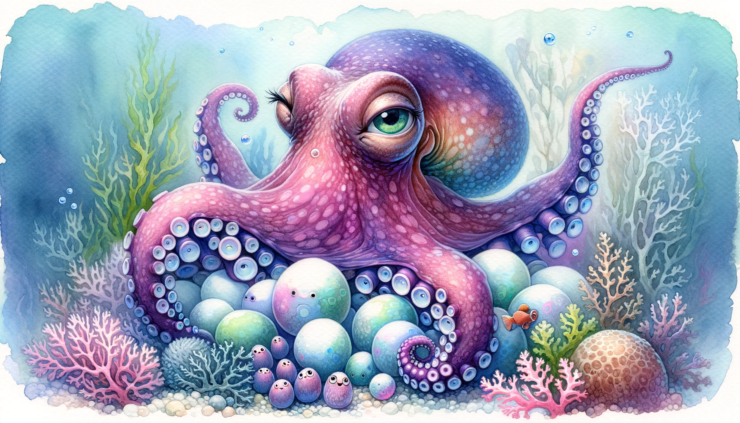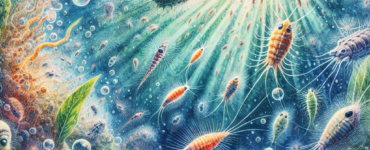Octopuses are indeed known for their extraordinary maternal devotion, with many species exhibiting remarkable sacrifices for their offspring. One of the most compelling examples is the female octopus’s behavior during the egg-brooding period.
Octopuses have a finite amount of energy, and during the brooding period, they allocate all available energy to caring for their eggs.((https://octonation.com/how-do-octopus-give-birth/))
Hunting is an energy-expensive activity, and the risks associated with leaving the eggs unguarded to hunt are too great. Thus, fasting is a trade-off where the mother prioritizes her offspring’s immediate safety and development over her own nourishment. This fasting can lead to a significant deterioration in her health.((https://phys.org/news/2018-09-grim-days-mother-octopus.html))
This is not mere survival; it’s a selfless testament of love.((https://theplanetvoice.com/mother-octopus-true-selfless-love/))
Every ounce of her dwindling energy is a silent vow, ensuring the safety and flourishing of her future lineage, even at the cost of her own existence. Her sacrifice, a poignant echo in the aquatic expanse, is the ultimate act of motherly devotion.((https://www.cbc.ca/documentaries/the-nature-of-things/mother-octopus-makes-the-ultimate-sacrifice-for-her-babies-1.6606813))
- Laying Eggs: A female octopus will lay hundreds or thousands of eggs, depending on the species. She carefully attaches these eggs in a protected place, such as under a rock or crevice.
- Guarding and Care: After laying her eggs, the mother octopus dedicates herself entirely to their care. She guards them diligently against predators and gently cleans them, removing algae and debris. She also aerates the eggs by blowing water currents to ensure they receive sufficient oxygen.
- Fasting and Sacrifice: During the egg-brooding period, which can last from a few weeks to several months, depending on the species, the mother does not eat. She dedicates all her energy to the protection and maintenance of her eggs.
- End of Life Cycle: The mother’s life cycle typically ends once the eggs hatch. The prolonged period of fasting, coupled with the energy expended in caring for her eggs, leaves her weakened and vulnerable. The dedication of the octopus mother often comes at the ultimate cost.
This level of maternal sacrifice is rare in the animal kingdom and highlights the unique lifecycle of octopuses. The mother’s commitment ensures the best possible start for her offspring, but it comes at the cost of her own survival.((https://www.sciencedaily.com/releases/2018/09/180925140402.htm))







































Add comment